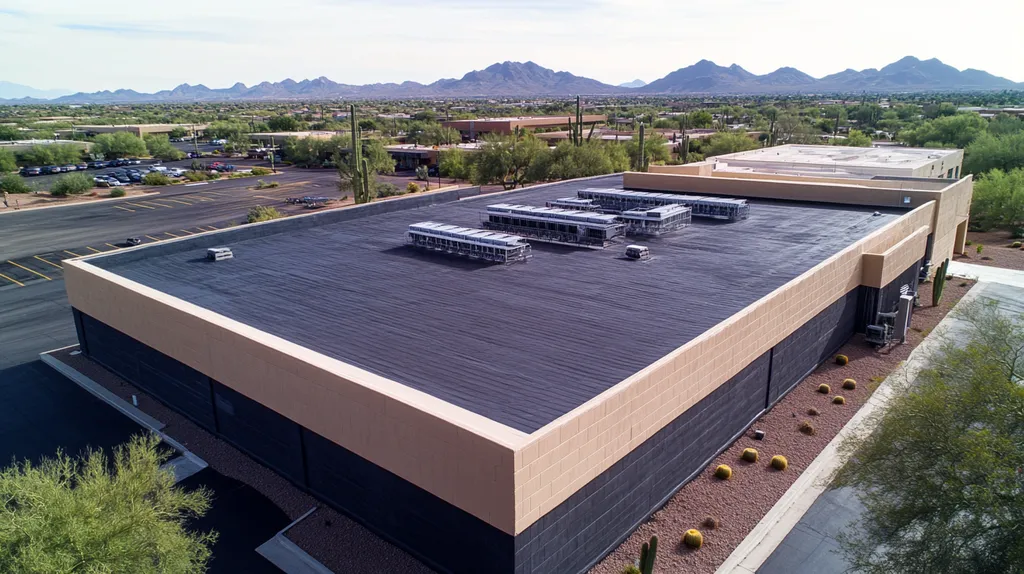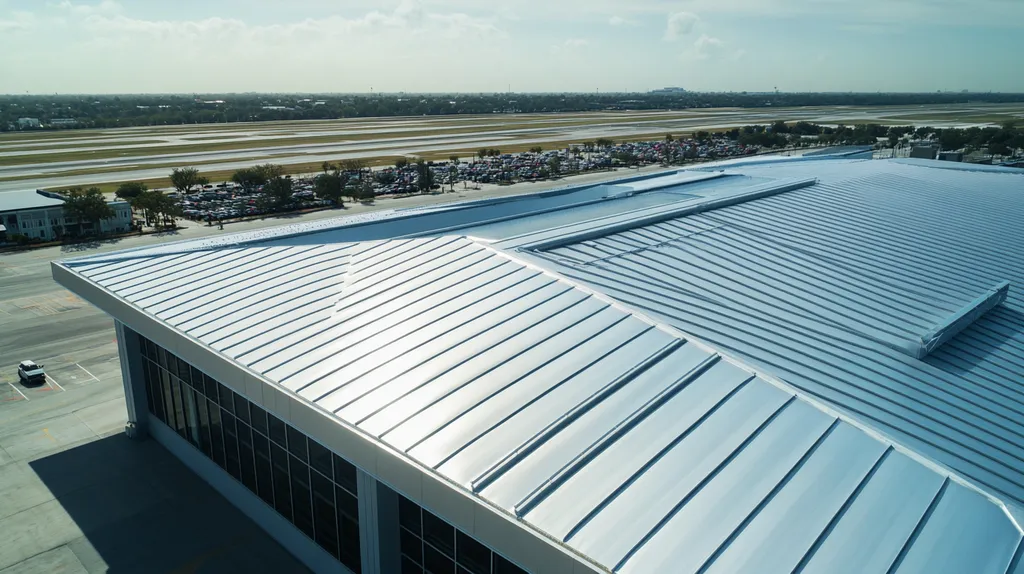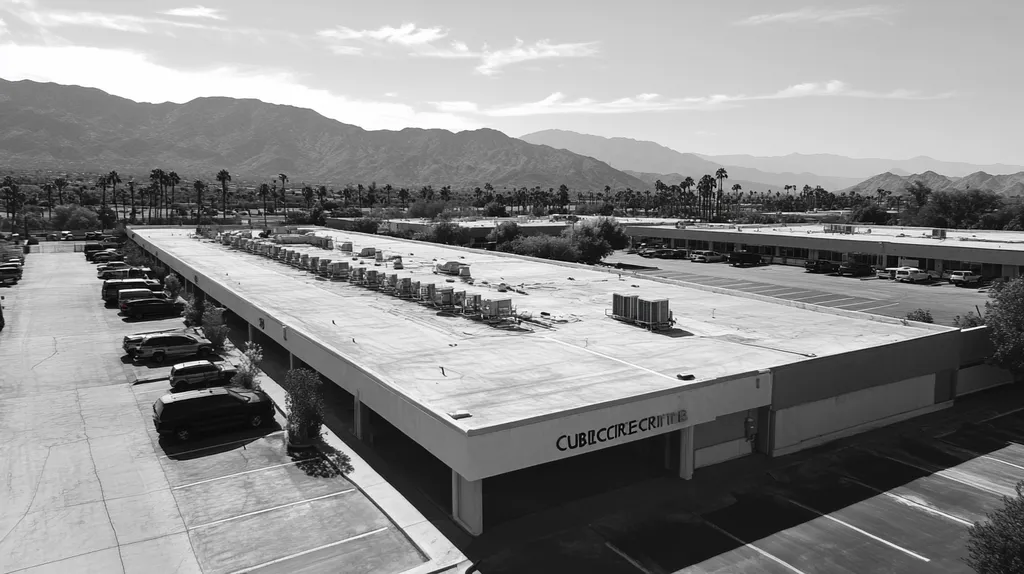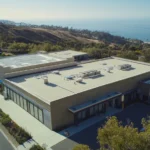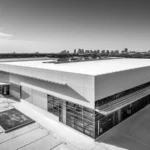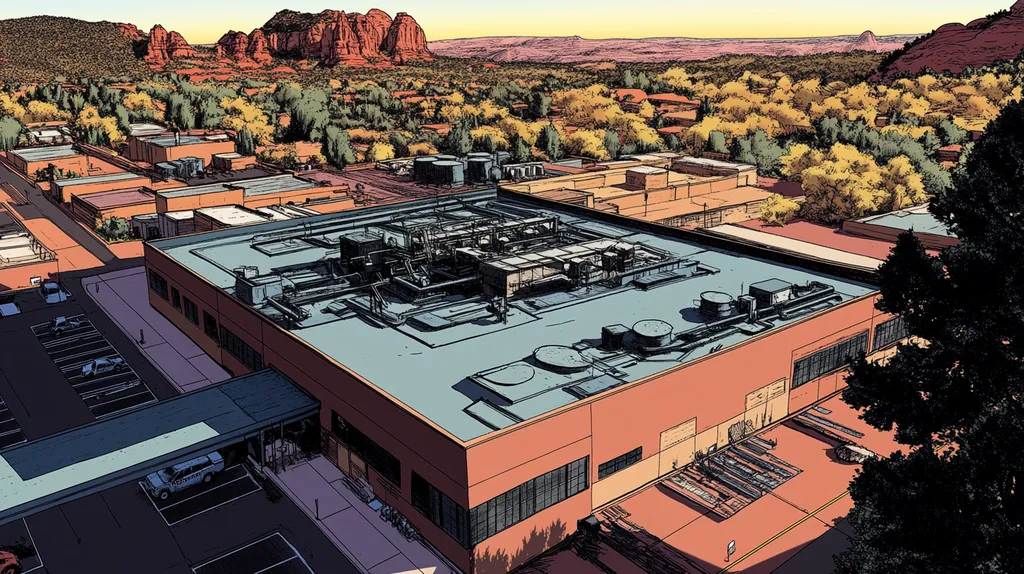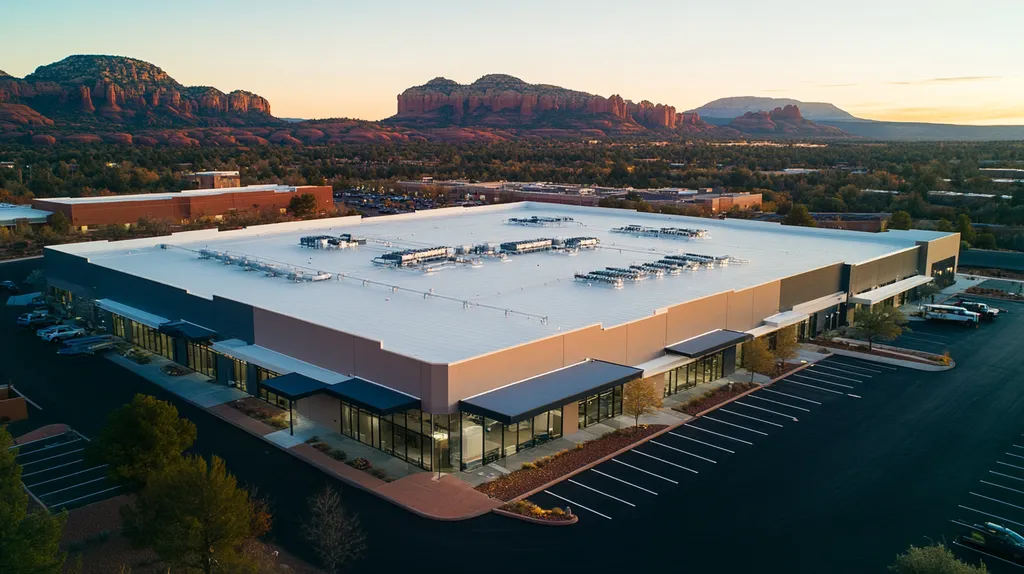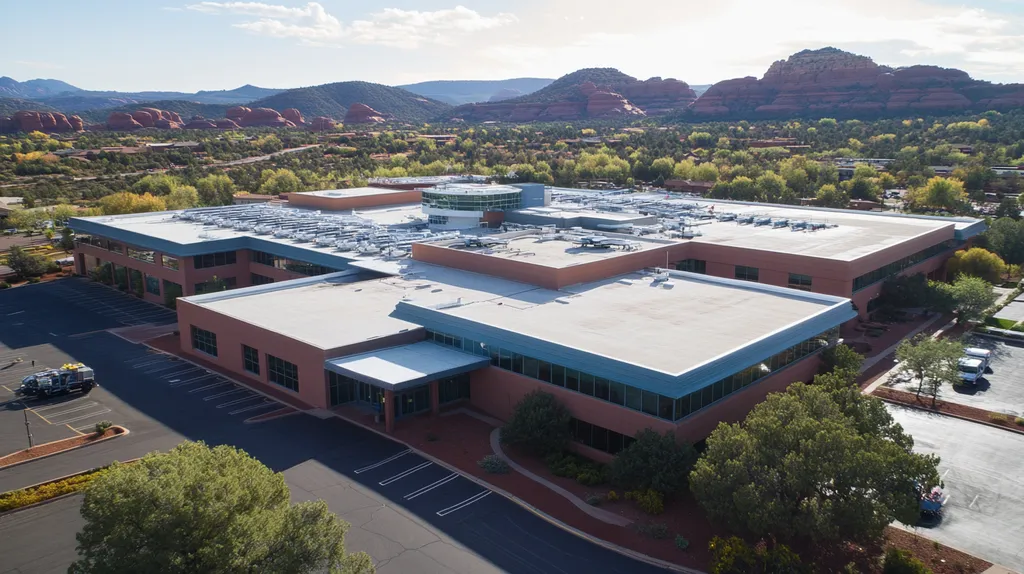Commercial roof coating projects face a critical turning point as nearly 30% of installations fail prematurely due to inadequate contractor oversight, resulting in billions in property damage annually.
The traditional roles of roofing contractors no longer align with modern building requirements and sustainability goals, creating significant risks for property owners.
From inconsistent quality standards to missed opportunities in energy efficiency, systemic issues plague the industry, demanding a thorough examination of established practices and alternative solutions.
SECTION 1: CURRENT PRACTICES
The roofing industry is at a pivotal moment, as property owners face serious challenges with inadequate contractor services on commercial roof coating projects. Poorly applied coatings can result in expensive leaks and unexpected downtime, threatening both the property’s value and operational efficiency. Alarmingly, nearly 30% of commercial roofing failures are due to improper application techniques. This section explores the crucial criteria for selecting contractors, clarifies expectations for the scope of work, and outlines essential insurance and licensing requirements that every property owner should consider when choosing a roofing contractor.
Contractor Selection Criteria
Selecting the right contractor is essential for the success of commercial roof coating projects. Many property owners focus primarily on cost, which can overshadow more critical factors such as the contractor’s experience and reputation. Hiring a contractor with a history of poor performance can create unresolved issues and unexpected costs later.
Criteria like previous project references, verified qualifications, and industry certifications are vital in making an informed decision. For instance, a contractor with certifications from notable organizations demonstrates a commitment to quality and compliance with industry standards. Strong communication skills are equally essential, ensuring transparency from the planning stages to project completion.
Failing to verify a contractor’s credentials can lead to hiring unqualified personnel, risking damage to both the roof and the property. Research shows that contractors who do not meet industry standards significantly increase the likelihood of warranty disputes, ultimately escalating repair costs over time.
Prioritizing experienced professionals over merely cost-effective options is crucial for long-term success. A qualified contractor not only executes the application accurately but also offers valuable insights regarding material choices and maintenance protocols.
Scope of Work Expectations
Establishing clear expectations for the scope of work is fundamental to any successful commercial roof coating project. Often, contracts lack specific details, leading to misunderstandings that can derail project progress. Property owners should ensure that contracts explicitly outline the materials to be used, the application process, and timelines for completion.
A well-defined scope incorporates key elements such as surface preparation and the number of required coats. For example, if the contract omits reference to necessary primer application, property owners may face unexpected costs if additional conditions arise during the project.
Property owners should also address warranties and maintenance plans from the outset. A comprehensive warranty guards against premature coating failures, while a structured maintenance plan promotes the longevity and efficacy of the coating. Implementing these preventative measures can save money and minimize the risk of unexpected repairs.
Ultimately, articulating the scope of work not only clarifies expectations but also fosters accountability. Without this clarity, projects are prone to pitfalls, wasting time and resources.
Insurance and Licensing Requirements
Being informed about insurance and licensing requirements is a crucial step in hiring a roofing contractor. Property owners must confirm that contractors possess adequate insurance coverage to mitigate potential liabilities. This not only protects the property itself but also shields the owner from financial impacts related to on-site accidents.
Moreover, licensing requirements differ by region, making due diligence essential. Contractors should hold the necessary local and state licenses, ensuring compliance with applicable building codes and regulations. Hiring unlicensed contractors puts the overall project integrity at risk and can expose property owners to legal ramifications.
Insurance coverage should include both liability and workers’ compensation. Liability insurance protects against damages incurred by the contractor during the project, while workers’ compensation provides protection in case of employee injuries. Overlooking these aspects can lead to significant out-of-pocket expenses for property owners.
In summary, thorough verification of insurance and licensing is vital for peace of mind. It ensures not only a professional level of work but also safeguards property owners from unexpected costs and potential legal issues.
SECTION 2: SYSTEMIC ISSUES
The stakes in commercial roof coating projects are alarmingly high. Property owners must navigate significant financial risks, with studies revealing that nearly 30% of roofing failures originate from the wrong contractor choice. Exploring and addressing systemic issues within contractor roles is imperative for safeguarding investments. This section delves into three pressing concerns: inadequate vetting processes, the lack of standardized services, and communication gaps that hinder successful project outcomes.
Inadequate Vetting Processes
One of the most pressing challenges in the realm of commercial roof coating is the insufficient vetting of contractors. Many property owners select contractors based on convenience or the most enticing bids, often neglecting critical criteria like relevant experience, certifications, and a proven track record.
Conducting thorough due diligence is essential. For example, hiring a contractor without proper licensing can open the door to extensive legal troubles later on. A study shows that properties lacking rigorously vetted contractors experience an increased risk of project failure by over 40%.
This lack of thorough vetting also fosters a culture of accountability gaps among contractors. Inadequate scrutiny can lead to shortcuts, resulting in coatings that fail prematurely or do not adhere properly. Ultimately, these oversights can jeopardize the roof’s longevity and result in costly repairs down the line.
To combat these issues, property owners should implement more robust vetting practices. This includes comprehensive background checks and carefully reviewing past project outcomes, ensuring that only qualified professionals handle crucial roofing assignments.
Lack of Standardized Services
Another significant challenge is the absence of standardized services across roofing contractors. Within the commercial roofing landscape, the range of services can vary dramatically from one provider to the next. This inconsistency creates confusion for property owners, making it difficult to discern what specific contractors are truly offering.
For instance, one contractor may provide a warranty while another opts not to include one, even if both profess to deliver “premium” services. As a result, property owners may unwittingly make decisions based on misleading assumptions, believing they are receiving comparable value when the reality may differ considerably.
This discrepancy not only complicates the selection process but can also adversely affect the performance of the roof coating. A contractor who employs outdated techniques or materials may yield a subpar result compared to one utilizing modern, effective products.
Establishing clear industry standards could be pivotal in providing clarity and consistency. Property owners should advocate for standardized service protocols that ensure fairer competition and improved outcomes for their roofing projects.
Communication Gaps with Property Owners
Effective communication plays a vital role in the success of any roofing endeavor. Yet, communication gaps between contractors and property owners are prevalent in the commercial roofing sector. Many contractors fail to adequately explain technical details, leaving property owners feeling confused and uninformed.
A breakdown in communication can spawn misconceptions regarding project timelines, expected results, and costs. For instance, if contractors don’t inform property owners about potential weather delays, this lack of transparency can lead to frustration without a clear avenue for recourse.
Moreover, property owners often possess critical insights about their buildings. Poor communication can lead to these insights being overlooked, resulting in inadequate assessments of the roofing needs. Consequently, the completed work may not align with the owner’s expectations or maximize their investment.
To address these issues, cultivating open lines of communication is essential. Property owners should insist on regular updates and clarifications throughout the process, keeping them informed and engaged. This proactive approach enhances trust and ultimately fosters better project outcomes.
SECTION 3: MISSED OPPORTUNITIES
In the world of commercial roof coating projects, overlooking critical elements can result in dire long-term ramifications. Alarmingly, 30% of property owners report experiencing roof failures due to insufficient maintenance, which directly impacts operational costs and overall property value. The contractor’s role must transcend mere installation; they should embrace comprehensive strategies that encompass maintenance, energy efficiency, and the integration of valuable customer feedback. Neglecting these factors can squander the myriad benefits that roof coatings can provide.
Overlooking Long-Term Maintenance
Many contractors narrowly focus on applying roof coatings, often disregarding the indispensable aspect of long-term maintenance. Without a structured maintenance plan, roofs can deteriorate rapidly, leading to leaks and structural problems. This neglect not only incurs greater costs over time but also undermines the initial investment made by property owners.
Contractors should prioritize discussions about regular inspections and maintenance schedules before project completion. Engaging property owners in this planning phase ensures that the roof coating’s longevity is maximized. A well-maintained roof coating can endure for 15 years or more, while a neglected one may fail within just a few years.
Moreover, proactive maintenance provides opportunities to identify problems before they escalate, protecting property owners from expensive emergency repairs. By adopting this long-term perspective, contractors enhance customer satisfaction and loyalty, nurturing enduring relationships.
Ultimately, a maintenance-centric approach can significantly elevate the effectiveness of roof coating projects and increase a contractor’s perceived value among clients.
Ignoring Energy Efficiency Benefits
The potential energy efficiency of roof coatings is a vital reason for their implementation. However, many contractors fall short in effectively communicating these benefits to property owners. Cool roof coatings have the capacity to reflect sunlight, significantly lowering energy costs related to heating and cooling.
According to a study by the U.S. Department of Energy, cool roofs can reduce cooling energy consumption by 10-15%. If contractors neglect to highlight these statistics, property owners risk missing out on significant savings in their operational budgets. It’s essential to view the installation not just as a one-off project, but as a long-term investment in energy performance.
Contractors should provide clear data on energy savings alongside the projected return on investment for roof coatings. This transparency can greatly influence purchasing decisions, making energy-efficient options more appealing to property owners. Equipping clients with knowledge about energy efficiency empowers them to make informed choices.
Overall, addressing energy efficiency during discussions about roof coatings can lead to environmentally conscious decisions and improved financial results for property owners.
Neglecting Customer Feedback
Contractors often miss opportunities by not actively soliciting and valuing customer feedback. Many companies proceed with projects without fully understanding the specific needs and concerns of property owners. This oversight can result in missed chances to enhance services and project outcomes.
Gathering feedback post-project can uncover essential insights into the customer experience and satisfaction levels. This information is vital for fine-tuning processes and addressing any shortfalls in workmanship or communication.
Additionally, proactively seeking customer input creates a collaborative atmosphere, where clients feel invested in the project. When property owners see their suggestions implemented, it fosters trust and can lead to repeat business.
In conclusion, valuing customer feedback is not just a formality; it is a crucial element in enhancing project outcomes and aligning contractor practices with client expectations.
SECTION 4: ROOT CAUSES
The commercial roofing industry is currently grappling with significant challenges that jeopardize successful roof coating projects. When property owners encounter inconsistent practices, they face the risk of shoddy workmanship and low-quality materials, ultimately leading to costly repairs. A lack of specialization among contractors frequently results in improper applications that fail to meet specific building requirements. Furthermore, financial constraints often drive the choice of cheaper, inferior options that can compromise the roof’s long-term durability and performance.
Inconsistent Industry Standards
The roofing sector suffers greatly from a lack of uniform standards regarding roof coating applications. Various contractors may adhere to different guidelines—or none at all—leading to inconsistent and unreliable outcomes. This inconsistency can result in coatings that fail to adhere correctly or provide the necessary protection against environmental threats.
For example, if a project employs coatings lacking the required certifications for durability and weather resistance, the roof may age prematurely. Without consistent application of manufacturer guidelines, building owners may be left vulnerable to moisture intrusion and other forms of damage.
Training discrepancies among contractors further complicate the situation. Many individuals in the field may not fully grasp the complexities involved in selecting and applying materials. As a result, misapplication becomes a rampant issue, leading property managers to grapple with unexpected maintenance expenses.
In the absence of cohesive standards, property owners may develop mistrust towards contractors, which hinders the advancement of effective roofing solutions.
Limited Contractor Specialization
The roofing industry often grapples with a lack of specialization, resulting in diminished project quality. Many general contractors attempt to cover a broad spectrum of construction services, with roofing being just one aspect. Unfortunately, this trend can lead to inadequate attention paid to the specific demands of roof coatings, which require specialized expertise.
When contractors do not receive targeted training in coatings, they might use methods designed for traditional roofing tasks instead. This approach can result in coating issues such as chipping, peeling, or improper adherence. Moreover, they may lack the knowledge needed to navigate unique environmental conditions affecting various building types, leading to inappropriate product choices.
Specialized training is essential for addressing the complexities associated with commercial roofing projects. When contractors fail to specialize, property owners risk the performance and longevity of their roofing systems.
A strong push towards specialization within the industry would encourage contractors to deepen their understanding of roofing coatings, ultimately enhancing job quality and increasing property owner confidence.
Financial Constraints on Quality
Financial limitations frequently lead property owners to opt for lower-cost alternatives over higher-quality materials and experienced contractors. Tight budgets often compel individuals to cut corners, endangering long-term project outcomes. While the initial cost of these lower options might appear attractive, they often conceal greater, hidden expenses down the line.
For instance, selecting cheaper materials may result in early failure of the roof coating, necessitating untimely replacement. This not only drives up costs but also disrupts the flow of business operations. Insufficient resource allocation perpetuates a cycle of compromise, ultimately undermining a building’s structural integrity.
Contractors also face challenges in responding to budget constraints, which may pressure them to recommend lower-cost solutions that aren’t ideal for the project. Such choices often reflect a focus on immediate profits rather than the long-term integrity and performance of the roofing system.
Consequently, quality is frequently sidelined, leaving property owners with roofs that may not endure as long as anticipated. It is crucial to emphasize the importance of investing in high-quality roof coatings, as these investments yield significant long-term benefits and savings.
DATA DRIVEN EVIDENCE
In the world of commercial roofing, the stakes are alarmingly high. Research indicates that nearly 25% of commercial roof coating projects fail due to improper application techniques or the use of unsuitable products. These failures can lead to not only hefty repair bills but also significant operational disruptions. To help property owners navigate these challenges, understanding the role of contractors through data-driven evidence is essential. Key considerations include a thorough analysis of past project failures, cost-benefit studies of various coatings, and insights drawn from customer satisfaction surveys.
Analysis of Past Project Failures
Data shows that a significant portion of project failures is attributed to inexperienced contractors lacking essential training. For example, it’s been found that 30% of roof coating failures are tied to improper surface preparation. This negligence often results in premature coating degradation, leading to leaks and other structural issues.
In a notable incident, a major manufacturing facility experienced a total roof failure after just three years, primarily due to inadequate contractor oversight. The contractor’s failure to follow manufacturer guidelines resulted in unexpected costs exceeding $250,000.
These examples underscore the urgent necessity for property owners to choose contractors who are well-versed in the complexities of commercial roof coatings. Implementing a transparent vetting process can significantly lessen the risks associated with poor contractor selection.
By conducting a comprehensive analysis of past failures, property owners can make more informed decisions when selecting contractors. Documenting these failures is not only beneficial for individual property owners but also encourages broader industry improvements.
Cost-Benefit Studies of Different Coatings
Cost-benefit analyses reveal pivotal insights regarding the effectiveness of various roof coatings. Although premium coatings may present higher initial costs, their long-term benefits often outweigh these upfront expenses. For instance, reflective aluminum coatings can slash cooling costs by as much as 30% over their lifespan.
Conversely, many commonly used coatings fail to deliver their promised savings due to inadequate installation. Research shows that poor application techniques can decrease the efficiency of standard coatings by up to 50%. This stark contrast illustrates the necessity of hiring experienced contractors who can ensure proper application and maximize product longevity.
Moreover, property owners typically experience a solid return on investment within just a few years when they invest in high-quality coatings. The durability of such coatings, combined with energy savings, makes them a financially sound choice in the long run.
By understanding the long-term advantages and potential savings associated with different roof coatings, property owners can collaborate more effectively with contractors to make better-informed choices.
Customer Satisfaction Surveys
Customer satisfaction surveys provide key insights into contractor performance and client expectations. A recent survey found that 68% of commercial property owners emphasized the importance of contractor communication throughout a project’s duration. Effective communication regarding project timelines and expectations significantly boosts client satisfaction.
Interestingly, satisfied clients tend to engage the same contractors for future projects, creating a cycle of reliability and trust. This reinforces the idea that successful roofing projects often stem from strong relationships between contractors and clients.
Surveys also indicate that property owners are becoming increasingly knowledgeable about their options, thereby exerting pressure on contractors to improve the quality and transparency of their services. Coatings that have previously performed well in projects received higher satisfaction ratings, illustrating the direct connection between contractor selection and successful outcomes.
Enhancing contractor practices in response to customer feedback can lead to improved satisfaction levels. To achieve the best results, property owners must advocate for superior service by selecting contractors who prioritize client engagement and satisfaction.
SECTION 6: ALTERNATIVE SOLUTIONS
In the realm of commercial roof coating, making the right choices is critical. Poor decisions can lead to substantial financial losses, along with disruptions to business operations. Research from the National Roofing Contractors Association indicates that improper roof installation can reduce service life by as much as 30%. Therefore, exploring innovative alternatives is essential for property owners and facility managers dedicated to maximizing performance and value in roofing investments.
Integrated Project Management
Integrated project management provides a comprehensive approach to commercial roofing projects. This method emphasizes collaboration among all parties involved, including contractors, manufacturers, and suppliers. By enhancing communication, teams can proactively address potential challenges before they escalate into more significant issues.
For example, in a coated roof installation project, effective project managers can synchronize schedules and allocate responsibilities efficiently. This strategic coordination minimizes delays and reduces the risk of mistakes, ensuring that the project runs smoothly from start to finish.
Moreover, integrated project management allows for timely adjustments in response to changing site conditions. When unexpected weather events occur, the team can rapidly modify their strategies to safeguard the roofing investment.
In an industry where efficiency matters, adopting integrated project management has proven to lead to higher quality outcomes and increased client satisfaction.
Specialized Roof Coatings Consultants
Specialized roof coatings consultants offer expertise that is crucial for commercial roofing projects. Unlike general contractors, these consultants concentrate on the technical details of roof coatings. Their deep knowledge ensures that property owners select the most appropriate materials and application methods for their specific needs.
For instance, a specialized consultant can assess a building’s unique requirements and recommend coatings that improve both energy efficiency and durability. Their insights can also help ensure compliance with ever-evolving environmental regulations.
Furthermore, these consultants guide clients through the maze of product certifications and warranties. This assurance helps property owners choose coatings that promise long-term performance, significantly mitigating the risk of premature failures.
In a market overflowing with choices, specialized consultants act as trusted partners, empowering property owners to make informed decisions that protect their investments and enhance roof lifespan.
Performance-Based Contracting Models
Performance-based contracting models are reshaping the dynamics between property owners and contractors. In this structure, contractor compensation is directly linked to the performance of the roofing system. Such agreements encourage high-quality workmanship and foster accountability.
For example, a contractor might receive financial incentives for extending a roof’s functionality or face penalties for early failures. This arrangement cultivates a proactive approach toward maintenance and service delivery.
Additionally, performance-based models help ensure property owners receive tangible returns on their investments by focusing on quantifiable results. This emphasis on outcomes motivates contractors to employ top-notch practices and high-quality materials.
As a result, performance-based contracts can drive innovation in roofing solutions, creating a beneficial scenario that enhances project outcomes for both property owners and contractors alike.
Moving Forward
The commercial roofing industry stands at a critical crossroads, with over $3.5 billion in annual losses directly attributed to inadequate contractor oversight and poor installation practices.
Property owners can no longer afford to maintain the status quo of traditional contractor relationships, as studies show 30% of roof coating failures stem from improper application and insufficient quality control.
The path forward demands a fundamental shift toward integrated project management, specialized consultants, and performance-based contracting models that prioritize long-term outcomes over short-term costs.
By embracing these alternative solutions and establishing rigorous standards for contractor selection and oversight, the industry can dramatically reduce failure rates while maximizing the return on roofing investments.
The future of commercial roof coating success lies not in maintaining established roles, but in revolutionizing how contractors interact with and serve property owners.
FREQUENTLY ASKED QUESTIONS
Q. What current practices should I consider for my commercial roof?
A. It’s essential to select contractors based on experience and verified qualifications. Ensure contracts clearly outline the scope of work, including materials, timelines, and maintenance expectations, to avoid misunderstandings that could derail your project.
Q. How can inadequate vetting processes affect my industrial roof project?
A. Inadequate vetting can lead to hiring unqualified contractors, increasing the risk of project failure. Thorough due diligence, including checking references and qualifications, is vital to ensure high-quality workmanship and protect your investment.
Q. What long-term maintenance strategies should I consider for my commercial roof?
A. Implementing a structured maintenance plan can prolong roof life and prevent costly repairs. Regular inspections and maintenance schedules are crucial, helping you catch potential issues early and protect your investment.
Q. How does inconsistent industry standards impact my commercial roof coating?
A. A lack of consistent standards can lead to unreliable results and poor adhesion, risking roof longevity. Ensure your contractor follows stringent guidelines to minimize the risks associated with subpar applications.
Q. What evidence should I consider when choosing a contractor for my commercial roof?
A. By analyzing past project failures, understanding cost-benefit studies of coatings, and reviewing customer satisfaction surveys, you can make informed choices. This data helps ensure better results and reduces the risk of future issues.
Q. How can integrated project management improve my commercial roof project outcomes?
A. Integrated project management enhances collaboration, improving communication among all stakeholders. This approach can proactively address challenges, synchronize schedules, and ensure smooth progress, ultimately resulting in higher quality outcomes.
Q. What benefits do specialized roof coatings consultants bring to the table?
A. Specialized consultants provide expert knowledge on coatings, guiding property owners to select suitable materials and ensure proper application. Their insights help improve energy efficiency and compliance with regulations, leading to better long-term performance.

